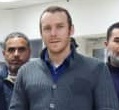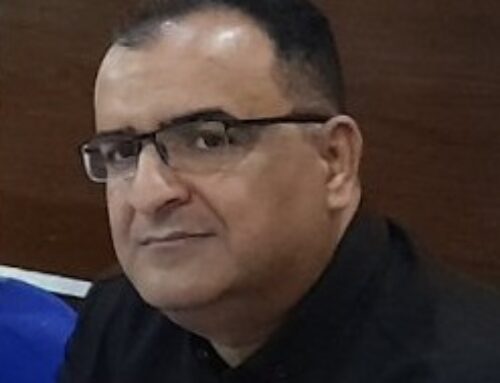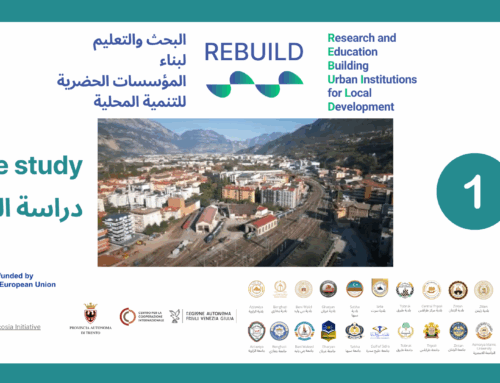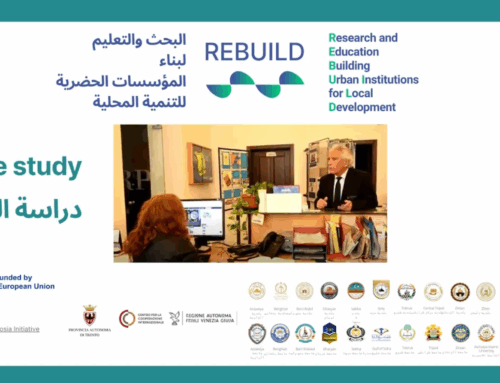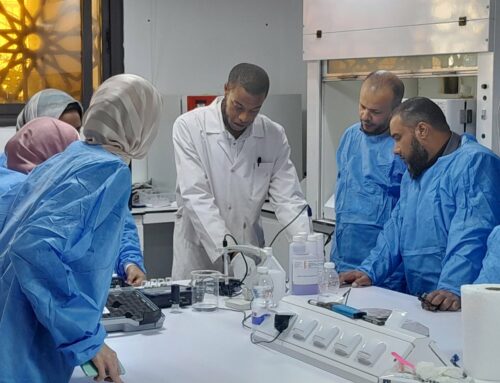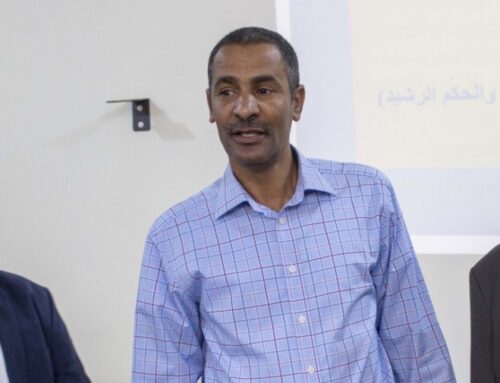Simone Cavazzoli, University of Trento
As a researcher at the University of Trento, in February 2024, I took part in a mission to Libya to contribute to the launch of the REBUILD pilot project on environmental safety. This pilot project is coordinated by the Province of Trento in collaboration with 5 Libyan partner municipalities.
The University of Trento provides technical and scientific support to the project. The aim is to strengthen the analytical capabilities of laboratories in the involved municipalities to enhance water resource monitoring and safeguard the population. The project involves delivering a series of theoretical and practical lessons provided by the University of Trento and an Italian company specialised in drinking and wastewater.
Besides providing useful information for laboratory managers, the training material aims to support the laboratories in sample planning and zoning areas for water quality monitoring. This phase is crucial, especially considering that optimal management of water resources is pivotal in Libya.
During the mission, we met with staff and visited laboratories in the municipalities of Garyan, Zintan, and Azzawiya. We also met laboratory technicians from Sebha and Beni Walid. Personally, I had the opportunity to discuss water analysis extensively with these colleagues. I observed a strong willingness among laboratory staff, particularly the more trained personnel, to conduct chemical, physical, and biological analyses for water quality monitoring.
Technicians are fully aware of the importance of their work as an environmental and health service for the population. They are also aware of the shortcomings of their laboratories (lack of equipment, reagents, trained personnel, suitable facilities, comprehensive methodological protocols), which prevent them from performing sufficient analysis.
One example that struck me was that of a young chemical laboratory technician, a geology graduate, who should work in the central laboratory in Tripoli. For the past year, every morning, he goes to the facility, but since the laboratory is under renovation, he cannot work and feels his skills are not (yet) a benefit for the population of the city.
Another observation from the short but intense mission in Libya is the lack of efficient communication between municipal structures (and laboratories) and central competent authorities in terms of data sharing, monitoring activity planning, etc.
Efforts are underway to improve such communication, and I believe our project can contribute in its own small way to this goal.
I am fascinated by the second pilot project of REBUILD on environmental and health safety and trust that it will produce something positive for all of us and in particular for the people living in the five Libyan municipalities.

